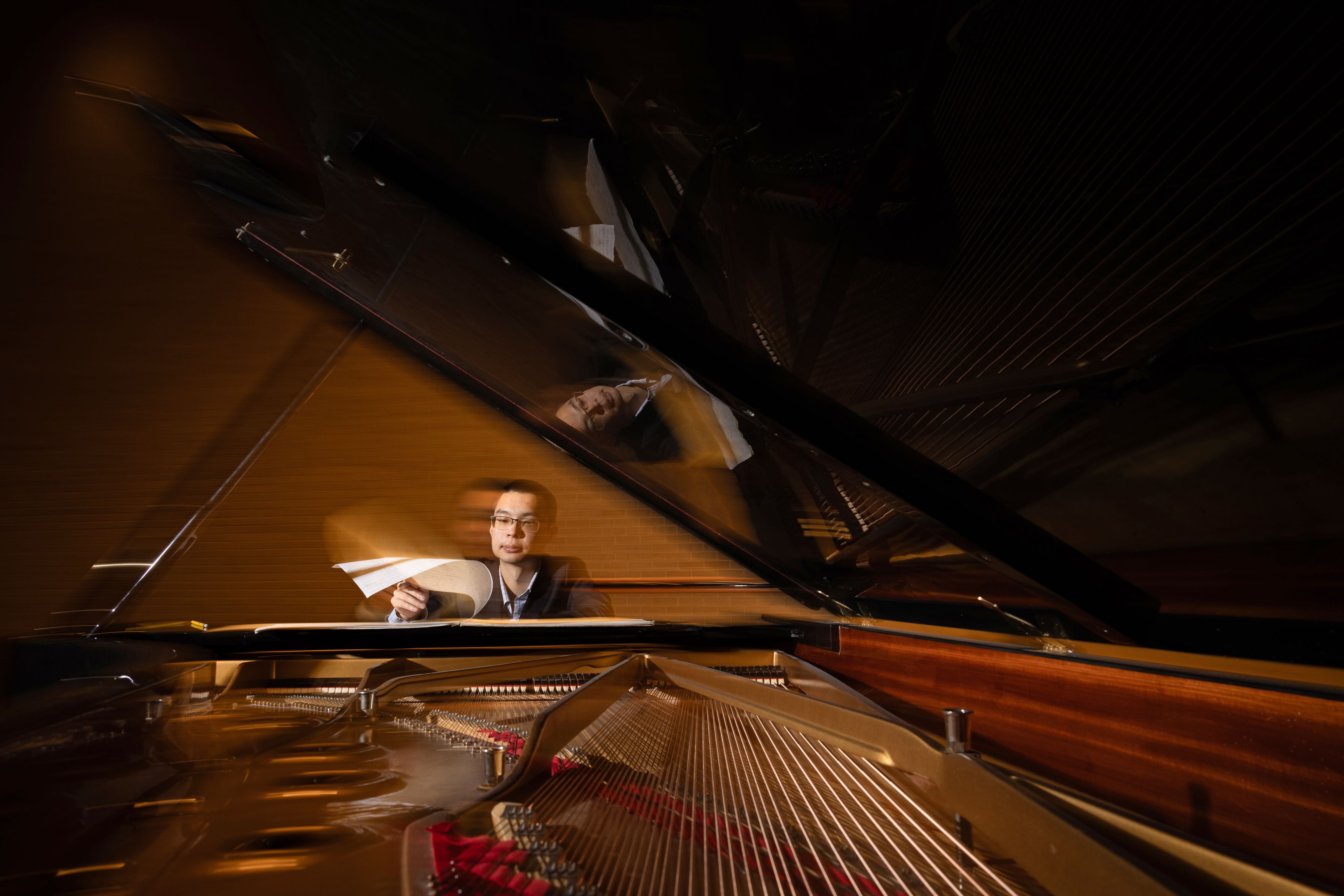Blurring Boundaries
UH Scholar in Residence Sam Wu has earned international attention for composing music that blurs boundaries and makes unique connections.
By Tyler Hicks

Blurring Boundaries
UH Scholar in Residence Sam Wu has earned international attention for composing music that blurs boundaries and makes unique connections.
By Tyler Hicks

As a child, when boredom would strike amid Shanghai traffic, Sam Wu would gaze out the car window and marvel at what he saw above.
“I think a lot of people have this idea of China as an ancient country with pagodas, mountains and temples,” says the 28-year-old composer. “But it’s really quite a futuristic- looking city, with lots of skyscrapers and highways — much like Houston.”
Looking at the intricate designs of different buildings sparked his love for urban planning and architecture — two loves he now nurtures and conveys in exciting ways.

Wu, a Cynthia Woods Mitchell Center for the Arts Scholar in Residence, is an internationally acclaimed composer with degrees from Harvard University and The Juilliard School. His compositions have been performed in Philadelphia, Minnesota, Tasmania and Melbourne — to name just a few — and in his words, these creations evoke “the beauty in blurred boundaries,” connections between buildings and the earth, or music and time itself. His subject could be anything from a cityscape to a planet to the wind.
Originally composed in 2018, “Wind Map,” was born from Wu realizing that a visualization of a global wind map closely resembled brushstrokes by Vincent van Gogh. Other entries in his catalog include “Mass Transit” — a piano quintet that takes listeners on a musical voyage a la a train journey through a city — and “Sheng Sheng Man,” a haunting rendition of a rainstorm.

Wu comes to UH with degrees from Harvard and Juilliard, as well as a number of prestigious awards for his compositions.
Wu comes to UH with degrees from Harvard and Juilliard, as well as a number of prestigious awards for his compositions.
All three pieces won prestigious international awards, and each is the kind of achingly mellifluous music that can only be conjured by someone uniquely in touch with both the world around them and their own creative process.
Wu’s ideas begin when something — it could be anything — inspires him. Then, he lets the idea take control.
“Once I start writing, I’m not even thinking about the concept,” he says. “I’m feeling where the music wants to go from there, and sometimes, I’m listening more than I’m driving it. That’s where music feels the most interesting, like a discovery process.”

Wu aims to help other aspiring composers make connections that inspire their best work.
Wu aims to help other aspiring composers make connections that inspire their best work.
He knows this is easier said than done, but he wants to help students and aspiring composers create their own connections. Much like he nurtured his nascent love of the Shanghai skyline until it became a burgeoning passion for the intricacies of design, Wu encourages any musician or artist to focus on what interests them outside of their craft — then see where that interest takes their work.
“I think people tend to feel inspired when they think of how to visually capture what really excites them,” he says. “But, sometimes, you find your inspiration as you go or from creating with others. The only solution is to dive in and begin.”

Wu reads an open book of sheet music.
Wu reads an open book of sheet music.





